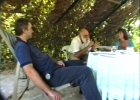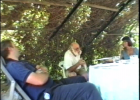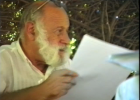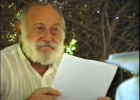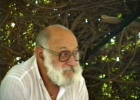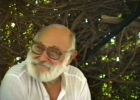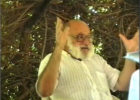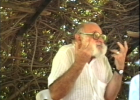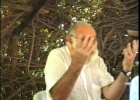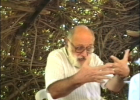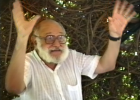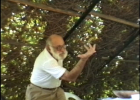Vilém Flusser
Articles of Vilém Flusser
Crônica Israelita / Shalom
La création scientifique et artistique / Wissenschaft, Weisheit (und Judentum
Time / Apokalypse und Fuge / Türkische Fabel / Das Märchen der Wahrheit
Gedächtnisstützen I / Gedächtnisstützen II / Gedächtnisse / Das Gedächtnis / On Memory /Memoria I / Memoria II / La mémoire
Até a terceira e a quarta geração / Bis ins dritte und vierte Geschlecht / Unto the Third and Fourth Generation
In this issue of Flusser Studies, we want to introduce two extracts from Vilém Flusser’s still unpublished book Até a Terceira e a quarta geração (Unto the Third and Fourth Generation), which was written in Portuguese in the first half of the 1960ies. The first extract, contains besides the table of contents and the introduction, two subchapters – School and Alchemy –, from the first chapter – Holy See. The second extract are two subchapters from chapter nine – Eternal Return and Model.
In this book, the author seeks to understand the problem of Nazism and the Holocaust as a problem related to the fundamental transformation of values in Western Civilization starting with the Renaissance. Flusser, who is well known for his use of new provocative points of view, opted in this case for a religious discourse with a strong ethical appeal. Flusser introduces the reader to the religious atmosphere of guilt, punishment and repentance. Mankind turned its back to the transcendental world of the Middle Ages, looking for an immanent world, which was a fertile ground for the emergence of the Modern Age. In the first chapter, Holy See, Flusser outlines the main characteristics of the Middle Ages and points out the moments, which led to its destruction, allowing for its radical transformation in the course to Renaissance. In the first two subchapters, the author specifically deals with two important aspect of Middle Age culture: scholasticism and magic.
The other two selected extracts show the radical change in the author’s methodology. The main topic of the Eternal Return is 1940, the year of the Hitler and Stalin alliance. Flusser comments bitterly on this moment, which he sees as the very culmination of the progress of our civilization. In Model Flusser develops his concept of apparatus, so important in the work of the 1980ies. Reality has lost its transcendental dimension and become pure fiction.
Della banalità del male (traduzione di Francesco Emilio Restuccia)
In this article, published in 1969, Flusser rethinks the concept of the banality of evil, which Hannah Arendt developed in her book Eichman in Jerusalem, in the chapter “A Report on the Banality of Evil” (1963). Unlike Arendt, Flusser is more interested in the trivial evil: the one produced by those who need to live with an apparatus (e.g. a factory or a school), even if they are responsible and well-educated. And given that nowadays, we increasingly cannot live without the apparatus, we should rather try to understand how we can be free with them.

